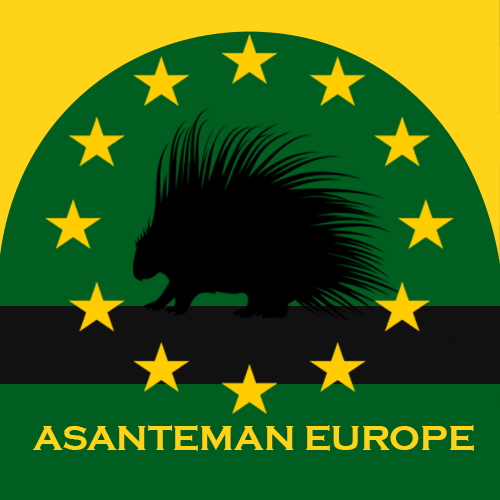THE REIGN OF NANA OSEI KWADWO
( 1764 – 1777 )
Nana Osei Kwadwo succeeded his uncle Nana Kusi Obodum. He too continued the extension of the Asante Kingdom through wars. His might in warfare earned him the appellation: “Osei Okoawia” , i.e Osei who fights in the broad daylight. He defeated Wasa and Banda people and annexed their states to the Asante Kingdom.
There was a civil war in Dagomba Land. This was a chieftaincy dispute. He was called by one faction to help them. He did so and the faction he went to help conquer the other faction. After the war, Dagomba land became part of the Asante Kingdom and the two states became brothers and friends o the extent that major decisions like the enstoolment of chiefs and funeral of royals in each of the states could not be carried on without informing the other state. This friendship agreement has existed until now.
The northwards expansion of Asante Kingdom territory by Nana Opoku Ware and continued by Nana Osei Kwadwo had its effect on the religion of Asante Kingdom. One of the reasons that led to the southwards migration of the Akan people was the advent of the Moslem religion. However, the Moslem religion began to creep into the Asante Kingdom, this time not through force but through friendship and extension of territory. The Islamic religion had its roots in Dagonba land, and when the land became part of Asante Kingdom, the new religion crept into Asanteland. Nana Osei Kwadwo also fought the Akyem people, the Akwapim and the Assin, and conquered them but they could not be annexed to the Asante Kingdom. Nana Osei Kwadwo introduced some changes into the Asante system of government. Before his reign, linguists were chosen from one clan, through inheritance, but he added the appointive system of choosing linguists also. With the appositive should, the chiefs could appoint other people found to be wise and eloquent to be a linguist . This gave rise to the practice where every new chief appoints his own linguist to augment the number already in the system.
According to oral tradition, when this experiment proved successful, Nana Osei Kwadwo went further to convert some of the stools of Kumase state which hitherto were hereditary and made them appointive. He further created new stools for the Kingdom, eg. Kyidom, Anomako stools for Ahenemma ( Children of Occupants of the Golden Stool). This brought efficiency into his administration because he had men with requisite capability at his court to advise him. This system again made him powerful because those he appointed owed allegiance to him. It is also learnt that he sent ambassadors to the states he conquered. A typical example was in 1776. He appointed the following ambassadors:
Boakye Awua —- ambassador to Dutch quarters i.e. Otublohum
Ankra —– ambassador to English James Town
Nkansa —– ambassador to Danish Christiansborg ( Osu ). Nana Osei Kwame Asibe also followed Nana Osei Kwadwo example.
After 1816 , Kwame Butuakwa was appointed Regional Commissioner for Fante and was stationed at Abora Dunkwa. Kwadwo Sakyi was appointed District Commissioner for Cape Coast and Kwadwo Akyampong Baki was made the District Commissioner for Elmina. Nana Osei Kwadwo also established embassy at Yendi. The last ambassador to Yendi was called Akyampontia. He was also the Nkwantananhene of Kumase. Though Nana Osei Kwadwo did all these to ensure stability in the Kingdom and to knit the states together for effective government, one cardinal point was that the new states did not recognise the Golden Stool as their symbol of unity and did not owe allegiance to it as the founders of the Asante Nation. Neither did they recognise the Ntamkese Mmiensa,i.e the Great Oath of Asante as their oath. As such, the states made a bid for their independence either singly or collectively at times. It was the military might of the Asante Kingdom and the bravely of the people which always quelled these rebellions.
The period of Nana Osei Kwadwo,s reign is referred to as revolutionary period and is simply called the Osei Kwadwoian revolution because of the government of the Asante Kingdom.
Source: The Kingdom of Asante
